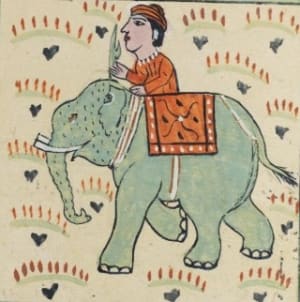The Institute for Advanced Studies on Asia, University of Tokyo, NIHU Global Mediterranean Area Studies Program at ILCAA, and the Japan Office of the Association for the Study of Persianate Societies are pleased to announce a lecture by Professor Fabrizio Speziale (EHESS).The talk will explore pseudonymous Persian texts as a strategy to domesticate non-Muslim technical knowledge and to legitimize the status of Muslim professional groups in Persianate South Asia. The event will be held in a hybrid format, with online participation available via Zoom.
Lecture Title:
Noah’s Grandsons and the Elephant: Functions of Persian Pseudonymous Texts in South Asia (Abstract below)
Speaker:
Professor Fabrizio Speziale (École des hautes études en sciences sociales)
Profile: https://www.ehess.fr/fr/personne/fabrizio-speziale
Date:
Monday, 2 June 2025, 18:00–19:30 (JST)
Venue:
Room 305, Institute for Advanced Studies on Asia (Tōyō Bunka Kenkyūjo), University of Tokyo and online via Zoom
Abstract:
This lecture enquires into pseudonymous Persian texts in South Asia as a device to domesticate non-Muslim technical knowledge and to legitimate the status of a Muslim professional group that emerged from interaction with the Indian natural and social environment. In the Risāla-yi kursī-nāma-yi mahāwat-garī, an illustrated text on the elephant and the elephant-keeper, claimed to be authored by one of Noah’s grandsons, the aforementioned profession—acquired from Indian society—is Islamised by making it congruent with the Muslim view of scientific and technical professions as practices dating back to the prophets of Islam. The Kursī-nāma is examined from the perspective of the function of the pseudonymous text and of how its social context shaped the expected function. What does this form of writing tell us, whether deliberately or not, about its hidden authors and their environment? The fictional narrative of the Kursī-nāma is a stratagem that grants new canonicity to a critical subject. From being cursed in the Qur’an, mahout became a respectable occupation in Mughal India due to its close association with royal power. In the Kursī-nāma, the creation of a sacred genealogical tree (kursī-nāma) of the profession and an Islamic ritual associated with it were meant to control and claim authority within both the groups of mahouts and their social environment. From this point of view, the Kursī-nāma constitutes a unique source for investigating the ascension of a professional group and its search for social legitimation.
How to Participate:
(1) In-person attendance: No prior registration is required. Please note: The institute’s entrance doors will no longer be accessible from outside after 18:00. We recommend arriving before that time. A contact telephone number for those arriving late will be posted at the entrance.
(2) Online attendance: Please register at https://forms.gle/hMtJDBoAJ8ujpGaL9. A Zoom link will be sent by noon (JST) on the day of the event.
This lecture is co-organized by the Institute for Advanced Studies on Asia, University of Tokyo (Regular Research Project W–1, "Approaches to the 'Persianate World'"), NIHU Global Mediterranean Area Studies Program at ILCAA, and the Japan Office of the Association for the Study of Persianate Societies.
Contact Info:
Kazuo Morimoto
Email: morikazu[at]ioc.u-tokyo.ac.jp
Image copyright statement: Fīlnāmah (Book of Elephants), Persian MS 882, Image courtesy of the John Rylands Library, the University of Manchester. Used under CC BY-NC 4.0 (https://creativecommons.org/licenses/by-nc/4.0/). Cropped from original.

